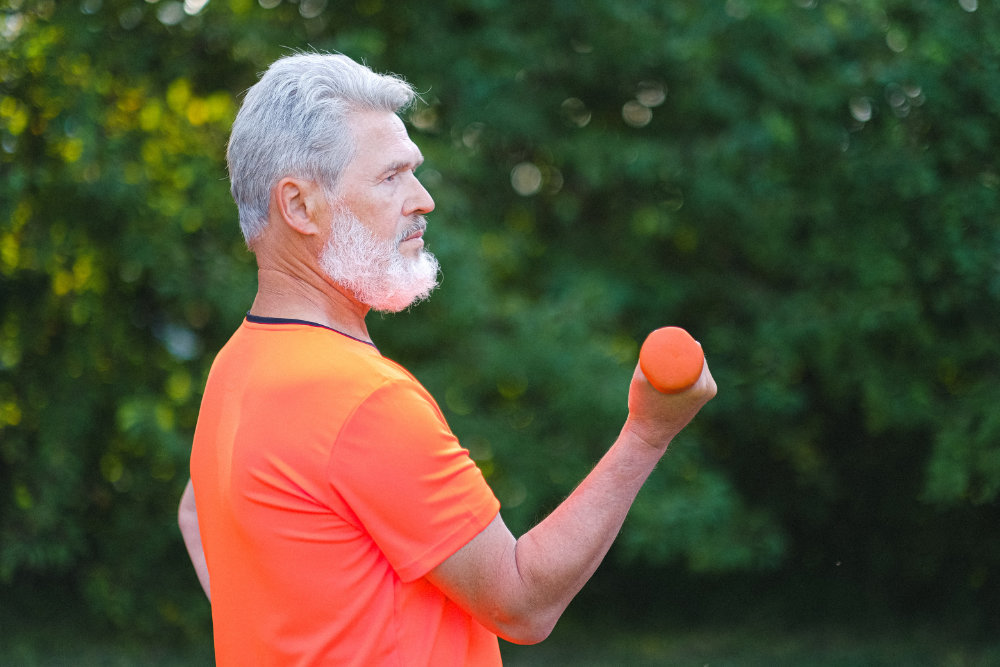
By: AndyC
Added: 15 August 2025
In fact, strength training is one of the highest-impact investments you can make in your health after 50, and it works even if you haven’t trained in years. Evidence shows that adding muscle strengthening work lowers the risk of early death and major diseases, improves balance, bone health and confidence, and pairs perfectly with walking or cycling. [1]
Why strength training is the foundation after 50
- Longevity & disease risk: Muscle-strengthening activity around 30–60 minutes per week is linked with around 10–17% lower all-cause, cardiovascular and cancer mortality. Benefits are even greater when you also do some aerobic exercise. [2]
- Falls & independence: Programmes that target strength + balance + functional tasks reduce falls in older adults which is a major win for confidence and staying active day to day.
- Metabolic health: Resistance training improves insulin sensitivity and glycemic control, which is crucial as the risk of type 2 diabetes rises with age. [3]
- Bone health: Progressive resistance training helps maintain (and in some sites improve) bone mineral density while increasing lower-limb strength which is key for hip and spine resilience. [4]
These outcomes are reflected in the UK Chief Medical Officers’ and WHO guidelines: aim for 150–300 minutes/week of moderate activity and muscle-strengthening work on 2+ days/week, with older adults adding balance work across the week. [5]
“Am I too old to start?” No absolutely not
Even people in their 90s build strength, muscle and function with supervised resistance training. That classic result matters because it proves the body adapts at any age when you train progressively and safely.
On safety: if you’ve not exercised for a while or have a medical condition, speak to your GP and begin at an appropriate intensity. The NHS guidance for over-65s echoes the same core message: move daily, strengthen and balance twice weekly, break up sitting, and build up gradually.
How I programme strength & conditioning for 50+
My coaching is evidence-led and practical. We build capacity around five staples squat, hinge, push, pull, carry and then layer in balance and power to keep you agile for real life.
Session shape (40–55 minutes):
- Prep & mobility (6 to 8 min): hips, thoracic spine, ankles; easy breathing.
- Strength focus (25 to 30 min): 3 to 4 movements, 2 to 3 sets of 6 to 12 reps at a moderate effort (you could do 2 to 3 more reps if you had to).
- Power & balance (6 to 8 min): e.g., controlled step-ups with a brisk intent, med-ball chest pass, or quick sit-to-stand. Power training (moving the weight with intent) can nudge function more than slow lifting alone.
- Cool-down (3 to 5 min): light mobility and stretches
Progression you’ll feel:
- Add a rep, add a little load, or slow the lower phase.
- From supported to unsupported (e.g., box squat to goblet squat).
- From static holds to controlled movement to move it with intent (power).
‘Personal trainers for over 50s near me’: what to look for
If you’re searching for personal trainers for over 50s near me, here’s a quick checklist:
- Evidence-based approach using progressive overload, not random workouts. (See the mortality, falls, metabolic and bone data above.)
- Screening & tailoring (med history, movement, goals), then a clear plan.
- Strength + balance + power components each week for over-50s function.
- Environment you enjoy: many over-50s prefer private personal training over busy gyms withquieter space, focused coaching, better adherence.
Looking for a fitness instructor in Exeter who specialises in over-50s? You’ll train in my private gym in Sowton (Exeter) or online calm space, proper coaching, and a plan you can stick to.
FAQs (quick science bites)
How often should I strength train?
Two days per week is enough to start; 30 to 60 minutes/week total is already linked to lower mortality risk—more isn’t always better, but consistent is.
Do I also need cardio?
Yes, add walking, cycling or swimming to hit 150 to 300 min/week. The combo of strength + aerobic gives the best health protection.
Will this help with balance and falls?
Yes, programmes that blend balance, strength and functional tasks reduce falls in community-dwelling older adults.
Ready to start?
Book a short chat and we’ll map your first month: simple movements, smart progressions, and a programme built around your life.
If you’re in East Devon (Exmouth, Sidmouth, Budleigh, Honiton) and want private personal training with a fitness instructor in Exeter, I’ve got space for a few new clients this month.
References
[1] https://bjsm.bmj.com/content/bjsports/early/2022/01/19/bjsports-2021-105061.full.pdf
[2] https://pubmed.ncbi.nlm.nih.gov/35228201/
[3] https://pmc.ncbi.nlm.nih.gov/articles/PMC8429971/
[4] https://link.springer.com/article/10.1007/s40279-022-01675-2
More Personal Training News
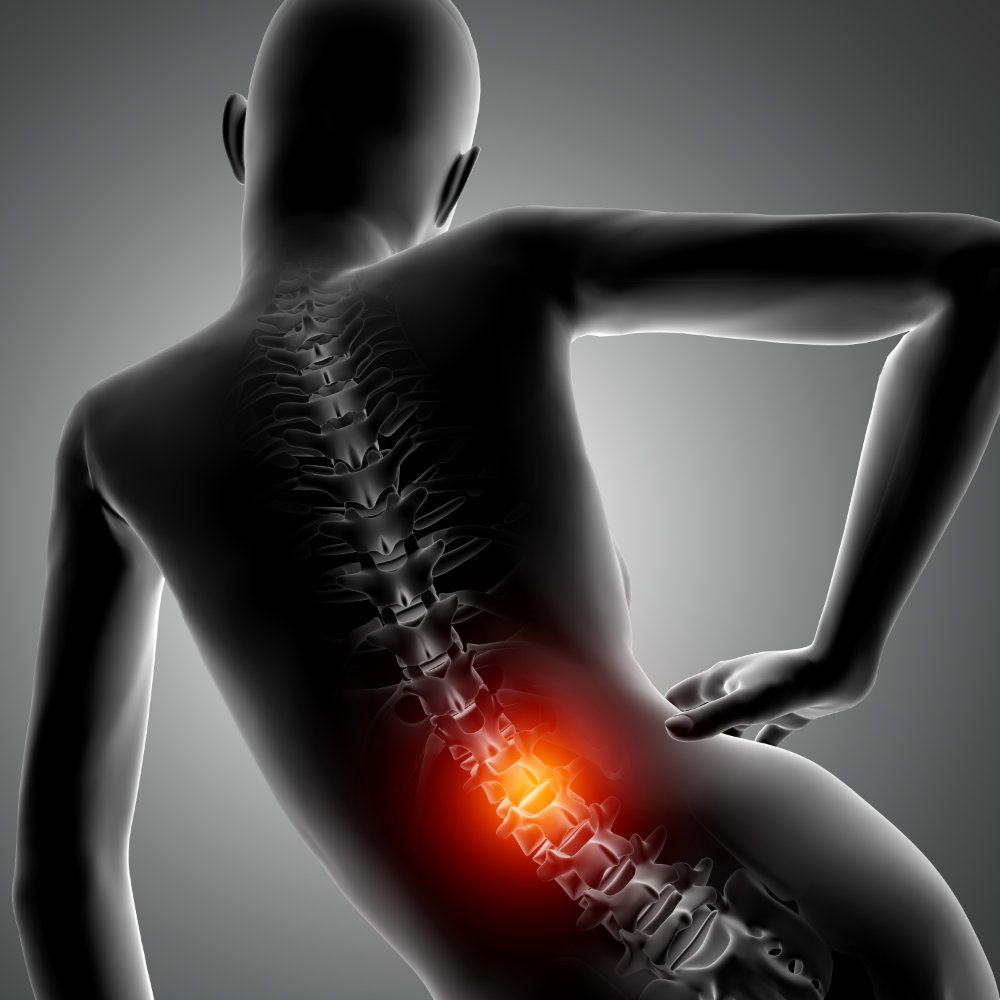
Strength training for lower back pain: what the best evidence actually says
The short answer is that for non-specific lower back pain (NSLBP), exercise (especially progressive strength training) is one of the most consistently effective treatments..

Strength training in Exeter: smart training for adults 40 plus (not just athletes)
If you're 40+ and want to move better, feel stronger, and stay active for decades, you don't need gym heroics, you need a plan that respects joints, builds capacity, and fits your schedule..

The power of consistency to build a fitness routine that sticks
We all know how tough it is to stick to a fitness plan. Life gets busy, motivation fluctuates, and sometimes exercise slips down our priority list..

Can eating your way to healthy aging make a BIG DIFFERENCE
When it comes to healthy aging, many people often focus solely on exercise. While staying active is crucial, recent research highlights just how powerful our diet is in determining our health as we age..
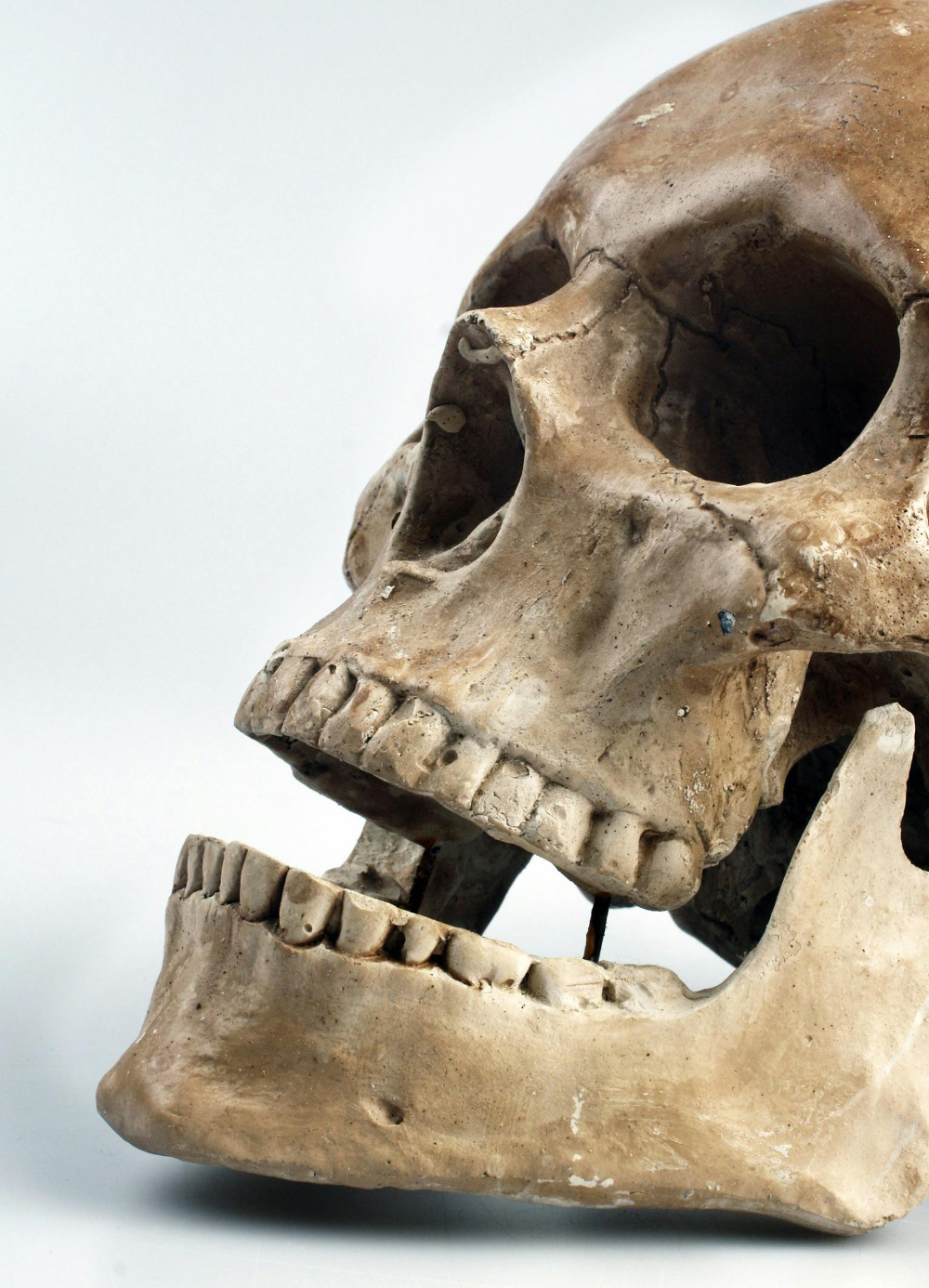
Is Fluoride in the water a helpful fix or just covering the cracks
There’s talk again about adding fluoride to drinking water (this time in Plymouth) as a way to tackle rising levels of tooth decay, especially in children..

Simple Mobility Exercises to Relieve Stiff Joints
If you're spending all day at a desk, you've probably had to put up with creaking joints, cramped muscles, and occasional aches. The bright side?.
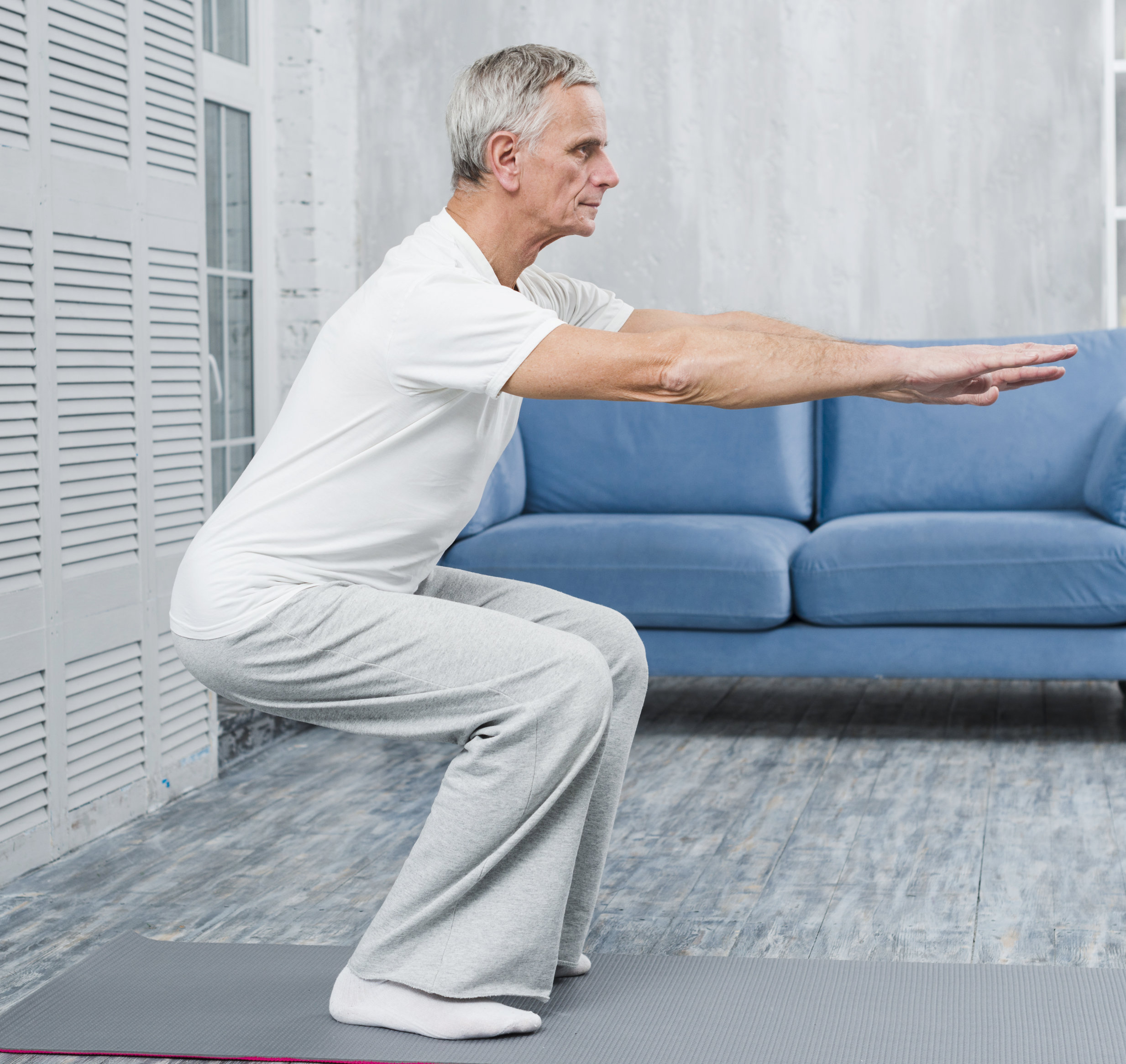
How Strength Training helps to Relieve Pain in Knees
Knee pain is infuriating. It can creep up on you over a period of time or hit you after many years of keeping active..

How to manage stress while maintaining good health
Life in a high-pressure job can be demanding, and stress often feels like an unavoidable companion..
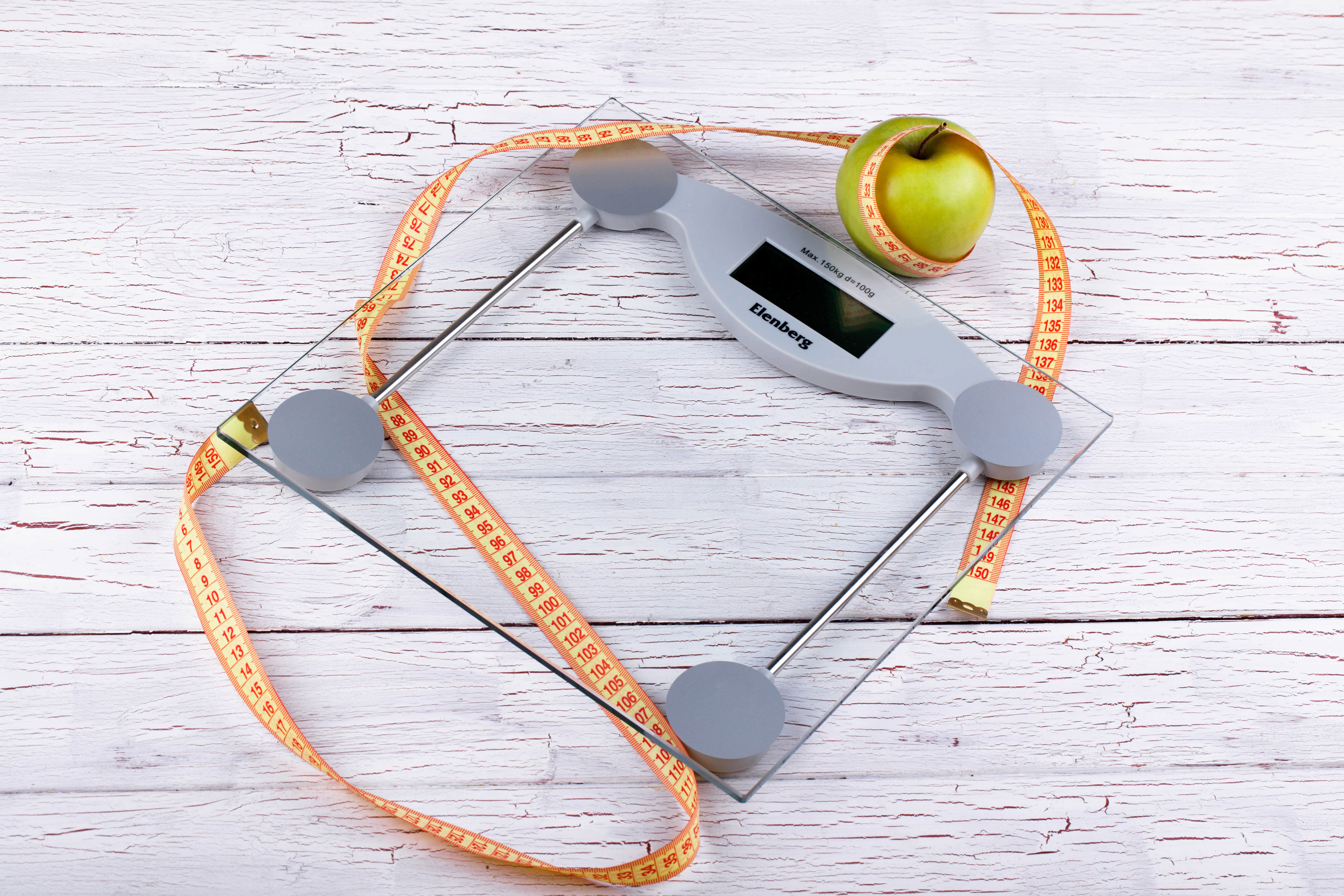
Is GLP1 a New Tool in the Fight Against Obesity
The UK government recently announced [1] a major trial investigating weight-loss drugs like GLP-1 agonists (e.g., tirzepatide) as part of the ongoing strategy to tackle rising obesity..

Why New Year's Resolutions often fail and how to Succeed
Did you know that a huge number of people (nearly 80%) give up on their New Year's resolutions by February?.

Gut Health The Game Changer for 2025
Gut health is fast becoming the wellness buzzword, and for good reason..

Understanding and Implementing Contrast Strength Training
Strength training has evolved into a science, and one method standing out in both athletic performance and general fitness is contrast strength training..

Turmeric: The Golden Spice of Health and Fitness
Turmeric, a vibrant yellow spice native to Southeast Asia, has gained global recognition not only for its culinary appeal but also for its impressive health and fitness benefits..

Sitting too much is harming your heart
Modern lifestyles have made prolonged sitting a daily norm, from long office hours to unwinding on the couch..
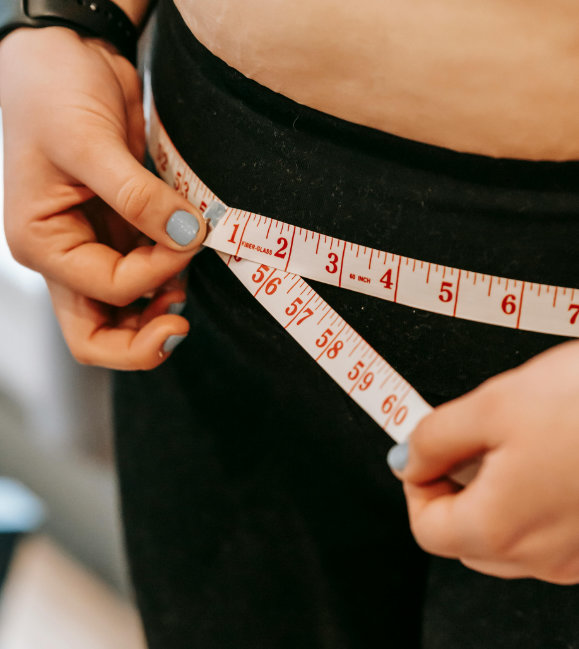
Why High Calorie Restriction Diets Don't Really Work
When people want to lose weight fast, the first instinct is often to drastically cut calories, believing that eating less will lead to quick fat loss..

Strength Training Builds a Foundation for Lifelong Health
As we age, maintaining our physical health becomes increasingly important, yet many people still believe that getting stronger is something reserved for younger years..

Top 10 benefits of Resistance Training has for treating the symptoms of lower back pain
Resistance training offers lots of benefits for treating the symptoms of lower back pain, making it an essential part of a pain reductions programme..

The Power of Protein: Why your body needs it
What exactly makes protein so essential, and how can you ensure you're getting the healthiest sources?.

Is a periodised training programme only beneficial for athletes
When it comes to achieving optimal fitness and performance, the concept of periodised training has long been a cornerstone in the world of athletics..

Can Exercise Reverse Type 2 Diabetes
Different forms of exercise, from aerobic activities to resistance training and HIIT, offer unique benefits in improving insulin sensitivity and overall health..

Is Exercise a Natural Antidote to Depression
Incorporating physical activity into your routine can contribute to a brighter, more resilient mental state..

Does Static Stretching Before Exercise Decrease Performance
Numerous scientific studies have shown that static stretching before exercise can actually have a negative impact on performance..
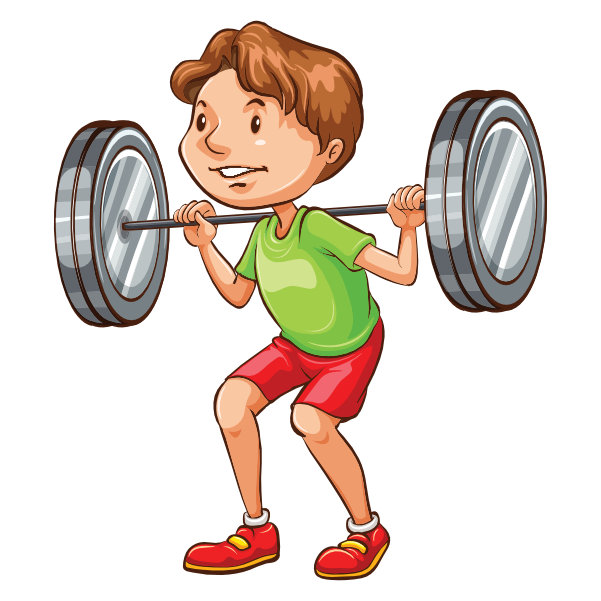
The Benefits of Resistance Training for Children
Resistance and weight training have long been associated with building muscle and improving strength in adults. However, there is a growing body of evidence suggesting that these forms of exercise can also be highly beneficial for children and adolescents..

Is Strength Training good for managing the Menopause
Menopause is a significant phase in a woman's life, marked by hormonal changes that can bring various physical and emotional challenges..
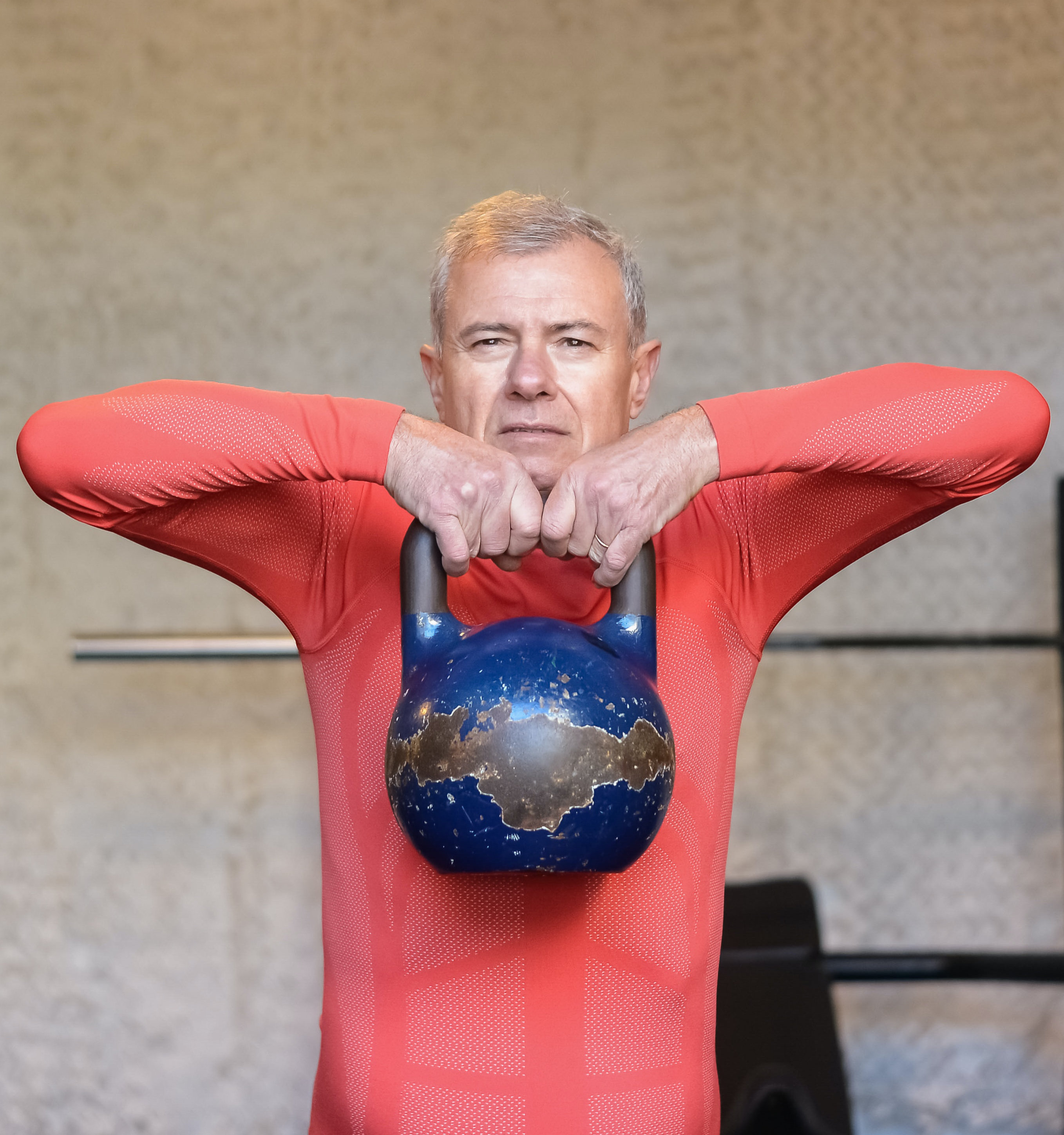
Is the Kettlebell the Ultimate Workout Tool
In the realm of fitness, the search for the ultimate workout tool is endless. When it comes to efficiency, versatility, and effectiveness, I think it could be the kettlebell..

Use it or lose it as the old saying goes
As the years go by, it is commonly believed that our bodies inevitably lose muscle mass, bone density decreases, and overall strength declines. However, scientific evidence suggests otherwise..

Don't be a cave man....be active this autumn
The nights getting darker and temperature dropping signal a time for cozy evenings and warm comfort foods. With this change in season also comes a tendency to slow down, exercise less, and indulge in calorie-rich treats..

Hypertension and High Intensity Interval Training
If you’re currently suffering from hypertension or pre-hypertension then perhaps carrying out some form of High Intensity Interval Training (HIIT) might be able to help reduce it..